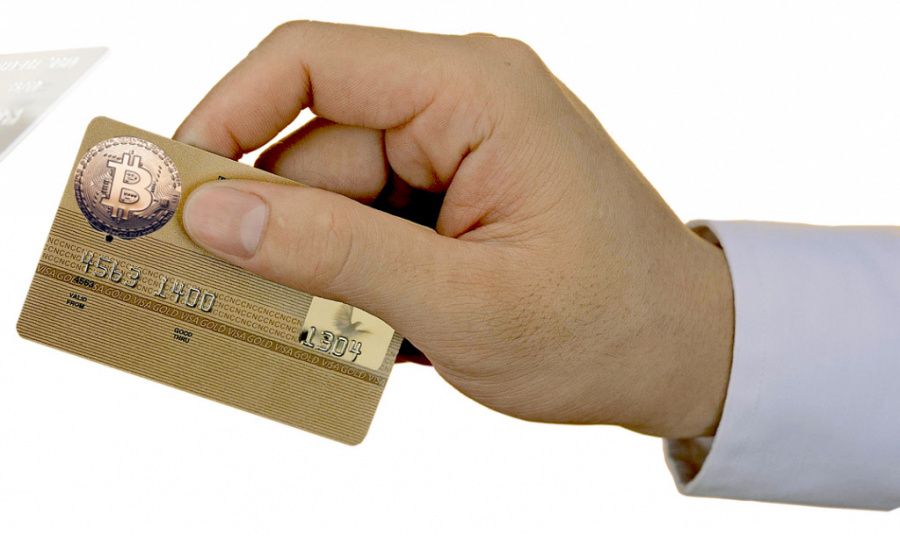As Simple as Cash: Bitcoin Debit Cards Are on the Rise
Updated: Jul 17, 2021 at 10:30

It seems that cryptocurrency and bitcoin debit cards are becoming popular worldwide. Visa Inc. a giant payment and financial services company with $81 billion in total assets, has launched a bitcoin debit card in Australia and it is expected to go live in September.
Bitcoin debit cards allow users to make online or in-person purchases, deposit or withdraw fiat money from automated teller machines (ATMs) using BTC, even though merchants and ATMs do not accept cryptoassets. Instead of exchanging cryptoassets for fiat, cardholders pre-load their debit card with any amount of BTC, which is then automatically exchanged at the moment of purchase.
Promoting crypto adoption
Now, the international payments whale has authorized an Australian crypto startup to issue debit cards that can be used to spend cryptocurrencies, starting with Bitcoin (BTC), the world's largest digital currency by market cap. This effort by Visa has sparked a growing interest in Bitcoin and other cryptoassets for the country's business market.
BTC debit card users will be able to pay bills, make payments using their BTC cryptocurrency at a variety of restaurants and retail stores. They will also be able to make direct purchases - there is no need to convert from bitcoin to fiat money first. This is a flexible way for cryptocurrency holders and users in the country to spend their coins on various everyday products such as movie tickets, headphones, smartphones, etc.
Visa has been working with other crypto-related companies to increase the use of Bitcoin and other cryptocurrencies in their payment services. For example, in March 2020, Crypto(.)com was asked to join Visa Australia to allow the company to directly and immediately offer its form of cryptoasset Visa card in the country. All these steps will help boost cryptoasset adoption in Australia.

The country is known for its friendliness towards Bitcoin and other cryptocurrencies, as well as other decentralized ledger technology (DLT)-based innovations. On July 13, Scott Morrison's government invested nearly $5.6 million to support pilot initiatives on blockchain technology. These projects are intended to put the country on the path to DLT and cryptocurrency development.
Today, 1 in 6 Australians own BTC and other types of cryptoassets. It is possible to pay for goods and services with BTC and other supported cryptoassets in many Australian cities such as Sydney, Brisbane, Melbourne and others. In general, the Australian government is optimistic that DLT and cryptoassets will play a major role in revolutionizing the country's banking and financial system.
Countries considering the introduction of cryptoasset debit cards
However, Australia is not the only country planning to introduce BTC debit cards; other countries are also looking to take advantage of this innovation.
For example, Ukrainian virtual bank Monobank has revealed that it plans to issue BTC debit cards, according to CoinIdol, a world blockchain news outlet. This move is aimed at encouraging the proliferation of cryptocurrencies.
Bitcoin debit cards are already working in the United States and some European countries such as Spain, the Netherlands, Germany, Ireland, France, Italy, etc.

Advantages and disadvantages of the cryptoasset debit card
Some of the main advantages of cryptoasset debit cards are: it can be used anywhere cards are accepted; users can pay with multiple cryptoasset wallets; they have several advanced security features; cashback rewards and referral bonuses; low or no transaction fee, exchange or withdrawal fees; flat or no monthly fee; kickbacks on streaming services; established cryptocurrency banking service; convert cryptoassets on demand; and many others.
However, like any other solution, bitcoin debit cards have their drawbacks. For example, they are available in a limited number of nations or continents; some support specific tokens; some require a certain balance of crypto for cashback rewards; cryptoasset debit cards with perfect perks are costly; some ask for social security numbers, national IDs, etc. to apply; can't send a crypto debit card to a P.O. box; some cards ask for an annual fee; some require KYC verification; some charge high fees; and many more.
Still, the mere fact that cryptocurrency cards are becoming more prevalent means that people are ready to accept digital assets as a viable payment option. It's all about simplification: cryptocurrencies seem too complicated for most people without special technical skills. Cards could make them simpler by making the use of crypto as easy as using fiat money. In that case, people might find it easier to adopt them as an alternative to money, not just as a store of value.Visa Inc. has launched a bitcoin debit card in Australia and it is expected to start operating in September.
News
News
Coin expert

(0 comments)